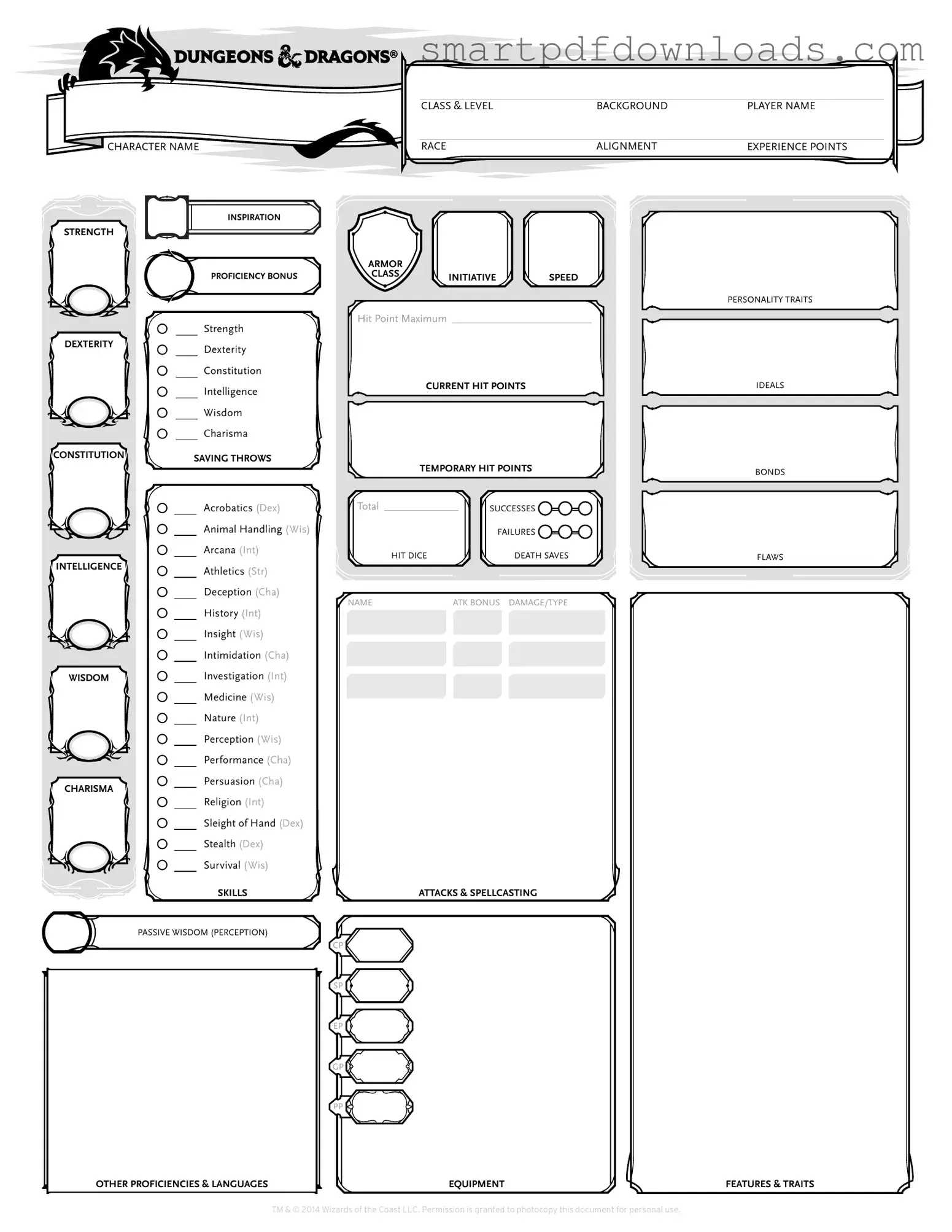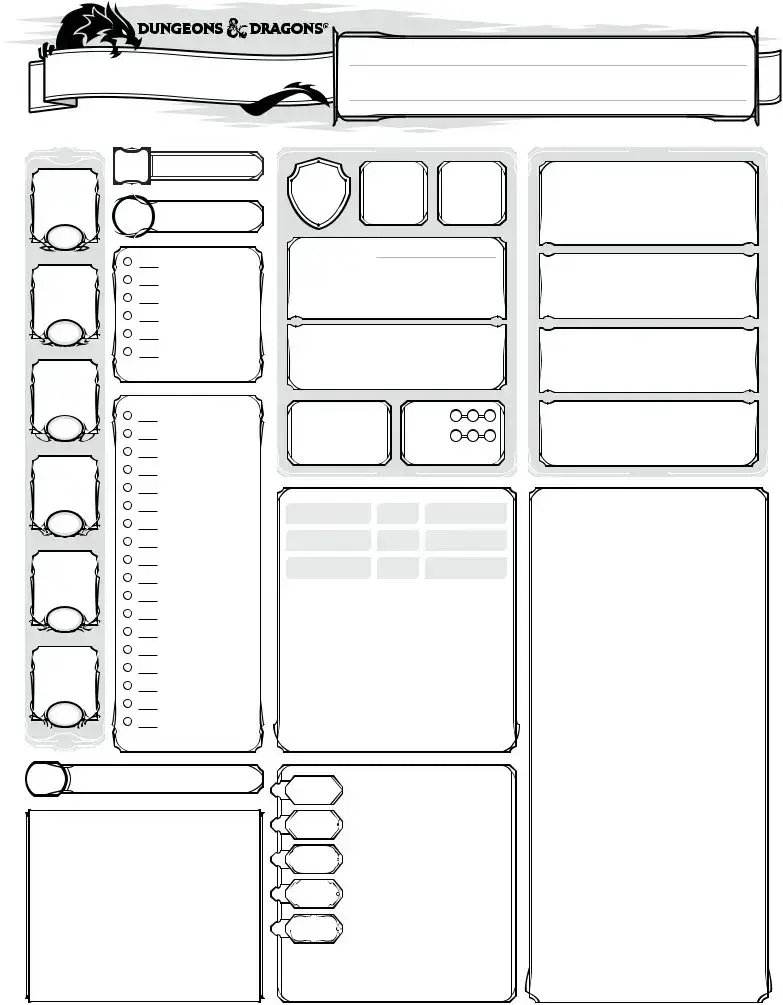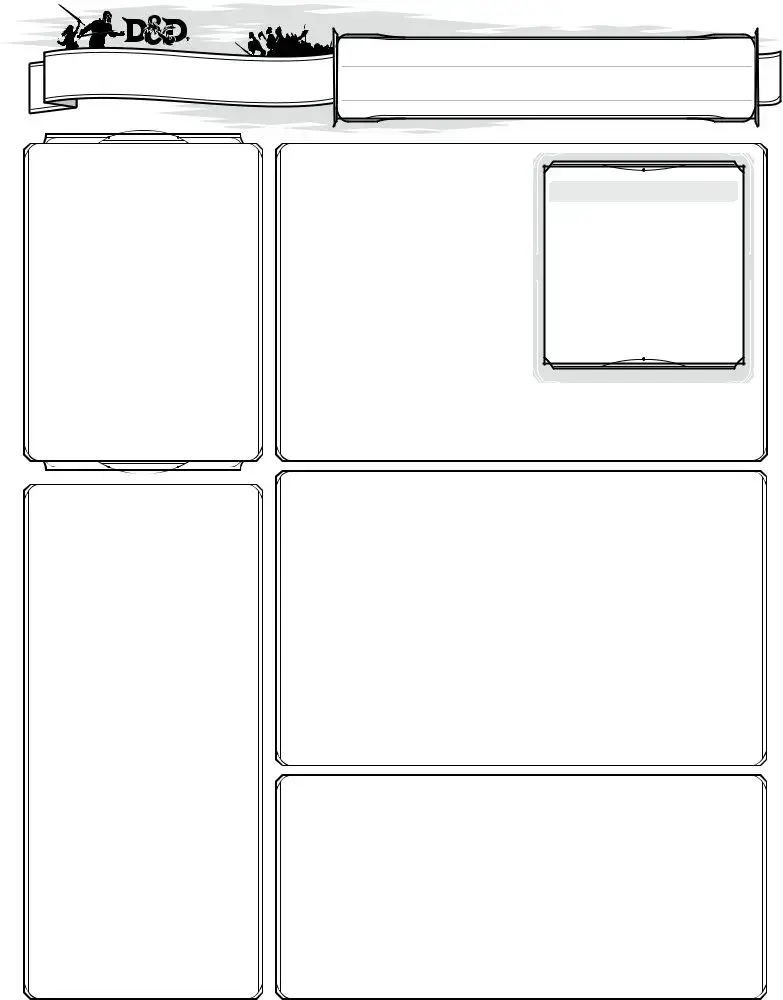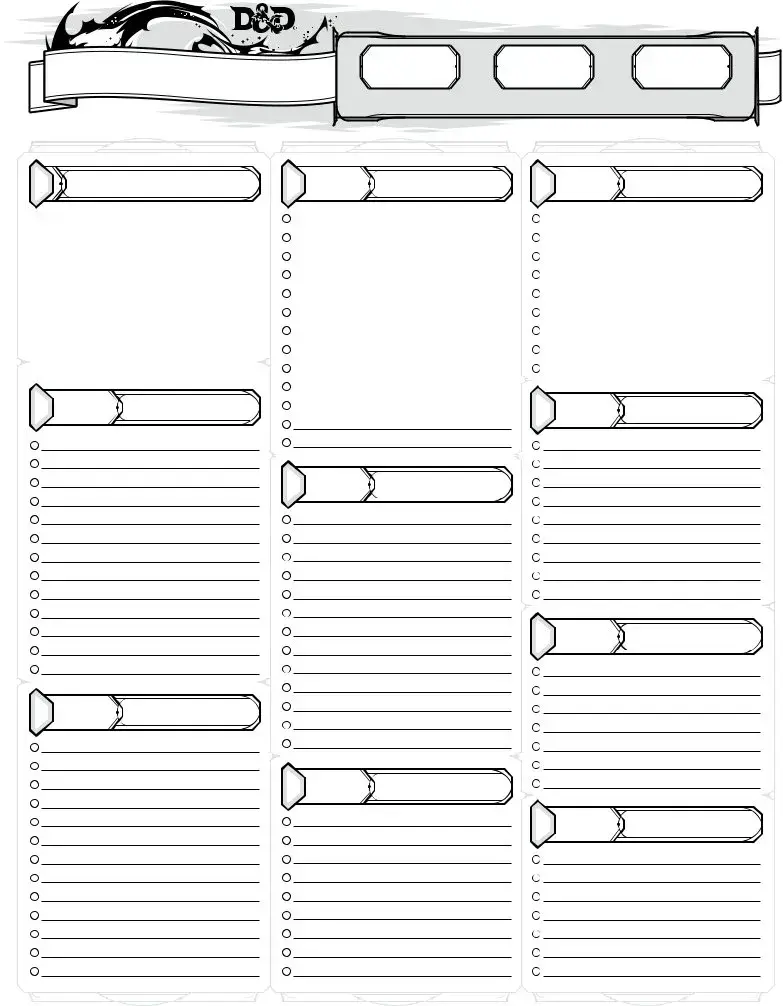Dnd Character Sheet Form
The Dungeons & Dragons (D&D) Character Sheet is a vital tool for players, serving as a comprehensive record of a character's abilities, background, and progression within the game. This form not only tracks essential statistics like strength and intelligence but also captures the character's story and personality traits. Understanding how to effectively use this sheet can enhance gameplay and enrich the overall experience for both players and Dungeon Masters.
Edit Dnd Character Sheet Online

Dnd Character Sheet Form
Edit Dnd Character Sheet Online

Edit Dnd Character Sheet Online
or
⇓ PDF File
Finish the form and move on
Edit Dnd Character Sheet online fast, without printing.












